Marchers: No one is safe until we all are
Women in show of solidarity against violence after shock killings seen in capital in recent years
Friday, 18th February 2022 — By Charlotte Chambers
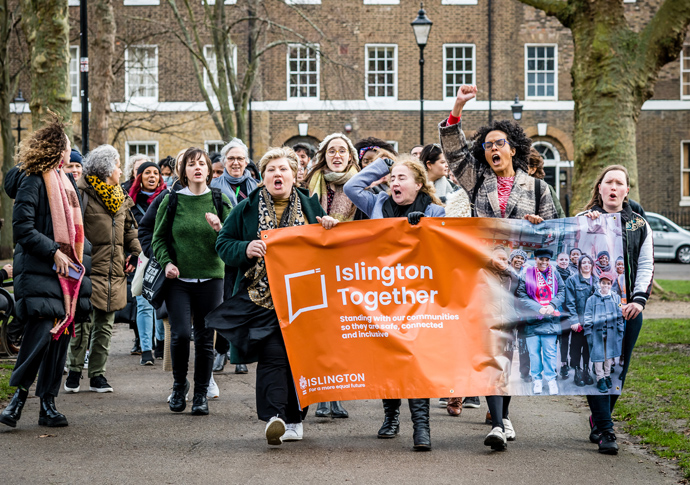
Islington MP Emily Thornberry and council leader Kaya Comer-Schwartz help send out the message
TO loud chants of “no one is safe until we all are” and fists pumping in the air as a megaphone was passed around, more than 50 women marched from Islington Town Hall to Holloway Road on Wednesday as a symbol of solidarity with women at risk of violence.
The event followed on from a similar walk held last year that was organised in response to the murder of Sarah Everard, who was abducted and killed by a police officer on her walk home in south London.
The Islington Together Women’s Walk comes five years after a BBC radio poll saw Islington voted the worst place in Britain for women to live, when taking in a number of factors including income and housing affordability, personal wellbeing and safety, as well as education, environment and culture. The towns around Glasgow were rated the best.
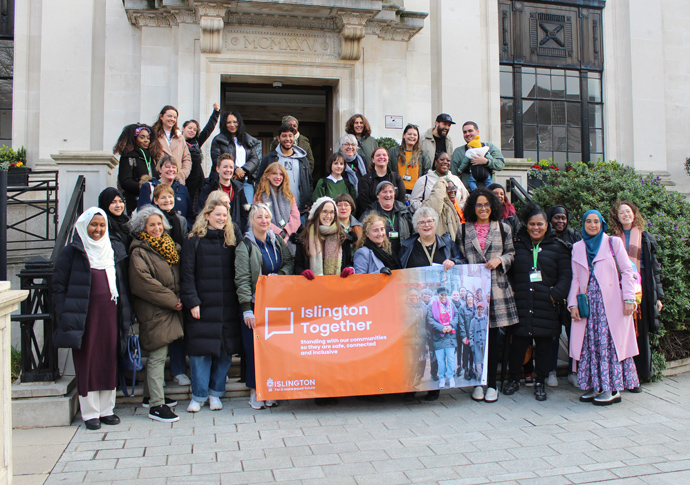
The marchers prepare to set off from the Town Hall
A number of influential women in the borough put their walking boots on to come together to talk about how to make Islington a safer and happier place, including Islington South MP Emily Thornberry, along with the leader of the council, Councillor Kaya Comer-Schwartz.
Cllr Comer-Schwartz said: “The Islington Together Women’s Walk precedes this year’s International Women’s Day and follows the high-profile murders of women in London in recent years including Bibaa Henry, Nicole Smallman and Sarah Everard, among others.
“These are all reminders of the work we all still have to do to combat inequality and tackle violence against women and girls.”
Her comments came as Islington launched a 21-day drive to push down crime and make people feel safer – as part of the findings of a consultation on safety, which ended in December.
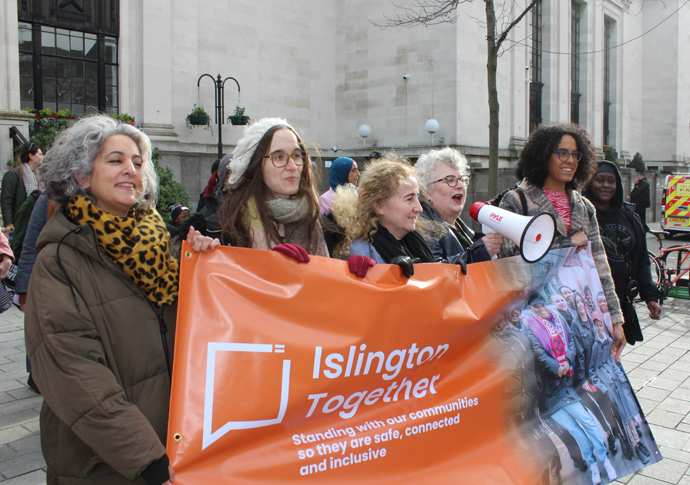
Sending the message out, loud and clear
Just under 2,000 people responded to the six-month consultation and told council chiefs ward by ward what made them feel unsafe.
The top reason cited was “being a woman”, followed by a lack of police, and groups of men loitering in the street. Half of all the responses were about Highbury, Canonbury and St Mary’s wards.
As a result, police have now concentrated their responses to those areas, and plan to offer advice to women on staying safe at night.
Councillor Sue Lukes, Islington’s community safety chief, also advised women that there were now over 100 Safe Haven spots in Islington – pubs, cafes and other venues – where women can walk inside if they feel at risk. Look out for the sticker on windows.
‘Our streets!’
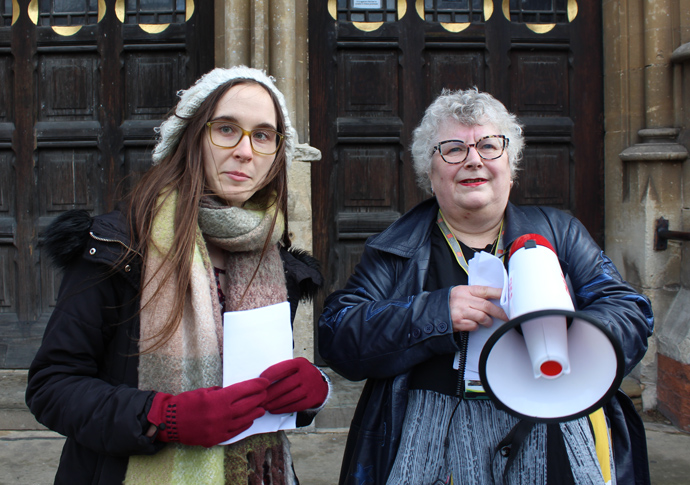
Councillor Sue Lukes, Islington’s community safety chief (pictured, above, with Katharine Crew)
‘We should be able to walk these streets. They’re our streets and we’re going to walk them as we please. My ambition is you come out of a tube station and you go home and you’re never too far from a Safe Haven.’
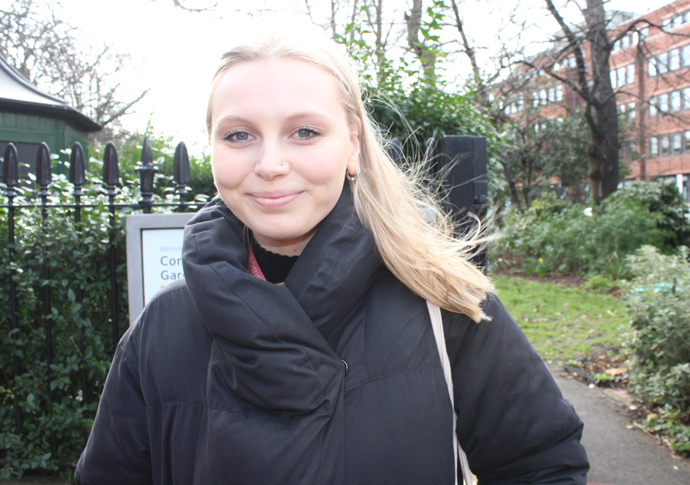
Josie Holden Wilby (above), Solace Women’s Aid
‘Violence against women and girls comes in all different forms but it comes from patriarchal values, whether it’s by partners, ex-partners or strangers in the street. Each week two women are killed by a partner or ex-partner in England and Wales and three women kill themselves because of abuse.’
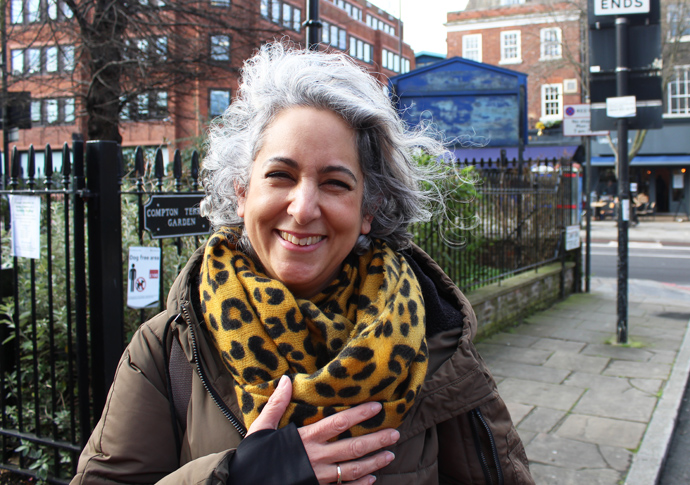
Anita Grant (above), Islington4Women
‘We started these walks last year in response to Sarah Everard. What we found was that women didn’t know their local areas at all. Women have got quite restricted areas and journeys that they make, even in their local neighbourhoods. They don’t explore and those decisions are based on feeling familiar and safe. We want to expand their horizons: when you start to know your neighbours that expands your local knowledge. The point of going on these walks is getting to know your neighbours. Women and children are safe when there are other children and families out and about in the urban space.’
Katharine Crew, Union Chapel
‘We’re really pleased for Union Chapel to be a Safe Haven. We want to open that support beyond our building so anyone can come to us and find support.’
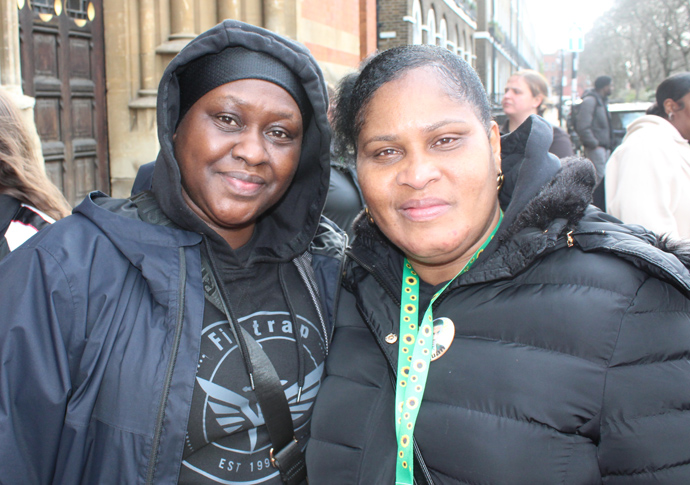
Jennie Appleton, Islington parents’ support group Love and Loss (pictured, above, with Jessica Plummer)
‘I’m here to give support. I’ve got a daughter who goes our at night, and I want her to feel safe. [Safe Havens] is a brilliant idea and it’s something we should have done a long time ago.’